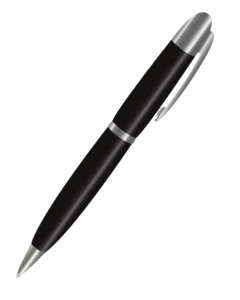
Research funding is having a moment. The future state of our research enterprise has dominated discussions in many Schools of Nursing nationally. However, in talking with early and mid-career researchers I have been struck by how paralyzing the related anxiety has been to many. While understandable, this paralysis is not insurmountable. There is always a degree of uncertainty with research funding, however it’s also important to lean into the other, less prominent side of research – disseminating our results.
has been to many. While understandable, this paralysis is not insurmountable. There is always a degree of uncertainty with research funding, however it’s also important to lean into the other, less prominent side of research – disseminating our results.
I’ve written a few manuscripts during my career, and I know it can be tempting to think that scientific writing comes easy to full professors. When I hear this sentiment from my mentees, I often share with them the story of my undergraduate thesis defense. After defending the thesis, I spent two years researching and writing, my committee told me I indeed passed and would graduate with honors. Then they kindly, but firmly, told me that my writing needed work and I needed to focus on developing it if I was ever going to have a scientific career. As painful as it was to hear that at the time; it was a fair critique and one that forced me to learn how to write. It was hard process, and I want to share a few tips that I’ve learned to help me write better scientific manuscripts.
Don’t start with a blank page. Staring at a blank page can be intimidating—even for experienced writers. Instead of diving right into drafting your manuscript, start by outlining your ideas, writing a clear purpose statement, copying over your methods section (which you should edit later), and mocking up your tables and figures. These guideposts provide structure and motivation, making the writing process less overwhelming. As your manuscript evolves, revisit and revise these elements often to improve its clarity and focus.
Read. A. Lot. – Making time to read can become increasingly difficult as academic demands grow. More meetings, more courses, more travel, more emails. While cliff notes have been around for decades, with technology it’s easier than ever to just ask the computer to summarize the literature on a given topic, rather than reading the systematic reviews and original sources yourself. But the process of reading and thinking about the literature is what allows one to engage in the most important thing in science- ask questions that lead to answers to help improve the human experience. Protect time to read and explore widely.
Write with friends. One of the best parts of being a nurse scientist is writing with friends. Collaboration brings fresh energy, new ideas, and broader perspective—and when it’s working well, that generosity flows both ways. Whether drafting a manuscript or revising a grant proposal,  writing alongside trusted colleagues makes the process more productive and enjoyable. If you have not experienced this yet, consider forming a writing group, building cross-disciplinary partnerships, organizing a writing retreat, or setting up regular writing accountability calls. Invite constructive feedback, share your drafts early, and be open to critique. Scholarship and scientific progress thrive in community—and writing with friends is one of the best ways to keep momentum strong.
writing alongside trusted colleagues makes the process more productive and enjoyable. If you have not experienced this yet, consider forming a writing group, building cross-disciplinary partnerships, organizing a writing retreat, or setting up regular writing accountability calls. Invite constructive feedback, share your drafts early, and be open to critique. Scholarship and scientific progress thrive in community—and writing with friends is one of the best ways to keep momentum strong.
Train your writing muscle. Writing is a discipline—one that grows through practice, feedback, failure, and persistence. With so many demands and distractions during the workday, carving out time to write isn’t just helpful—it’s essential. Protecting regular time to write is how we build the muscle that sustains scholarly productivity.
Many of us became nurse scientists because we’re energized by the process of thinking deeply about complex issues that impact human health. Writing, revising, resubmitting, and revising manuscripts again and again are not just tasks to be checked off a list—they are a form of intellectual engagement. It is the process by which ideas sharpen, arguments evolve, and science moves forward. Schedule your writing. Block the time needed and fiercely protect it. Writing is where your science will find its voice.
There are many great resources to help nurse scholars with writing manuscripts. A few that we often refer people to are the Writer’s Camp by legendary nurse scholar Leslie Nicoll , The American Journal of Nursing’s 2017 writing resource series, and The American Nurse’s Dissemination 101 article.
We would also love to hear, and share, some of your favorite tips and tools for writing manuscripts. Please send those to us and reach out any time to propose new services or programs that the Office for Nursing Research & Innovation can provide to help you disseminate your science.
“The important work of moving the world forward does not wait to be done by perfect men.” – George Eliot
Start now. Because your science, your words, and your ideas can be the force that helps move the world forward.